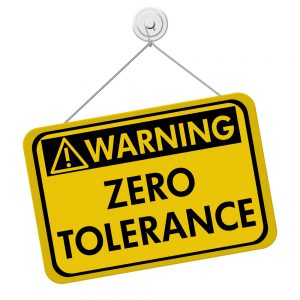
A bipartisan resolution to cease sexual harassment within the U.S. House of Representatives through prevention and response training was introduced by U.S. Reps. Ryan Costello (R-PA) and Bruce Poliquin (R-ME) last week.
H.Res. 604, would require the House to abide by laws Congress establishes for other federal employees by stipulating that every House employee take annual sexual harassment prevention and response training from the Congressional Office of Compliance. Completion certificates for the training would need to be filed with the House Ethics Committee.
In addition to staffers, the requirement includes each elected member from states, each elected delegate from territories and the District of Columbia, the elected resident commissioner of Puerto Rico, and appointed House officers such as the clerk of the House among others.
“I believe mandatory compliance training for sexual harassment prevention and procedures for response should be instituted for members of Congress and all employees of the House,” Costello said. “This resolution is an important step forward to establishing a clear standard and approach to addressing this issue.”
The Congressional Education About Sexual harassment Eradication (CEASE) Resolution also states that failure to meet the training and certification requirements would constitute a violation of the House Code of Conduct. The Compliance Office currently offers online training on sexual harassment prevention.
“It is fundamental to an employee’s safety for he or she to always feel comfortable at their workplace, and it’s past time Capitol Hill move in that direction,” Poliquin said. “In Congress, we set the laws and the policies for employees in the Executive Branch requiring federal workers to undergo sexual harassment awareness training. How can we be expected to lead on those policies when we, ourselves, are so far behind?”
Reps. Jackie Speier (D-CA) and Robert Brady (D-PA) joined Costello and Poliquin in introducing the bipartisan bill. “It’s long past time that Congress held itself to the same standards applied to other branches of government and to the private sector,” Speier said.



